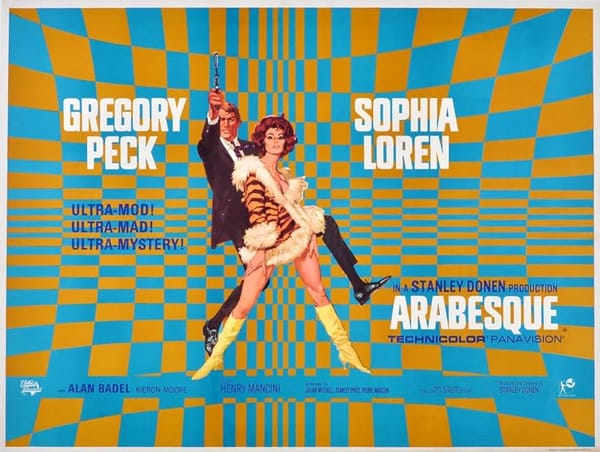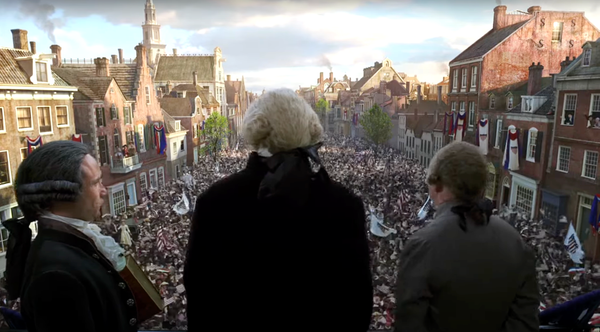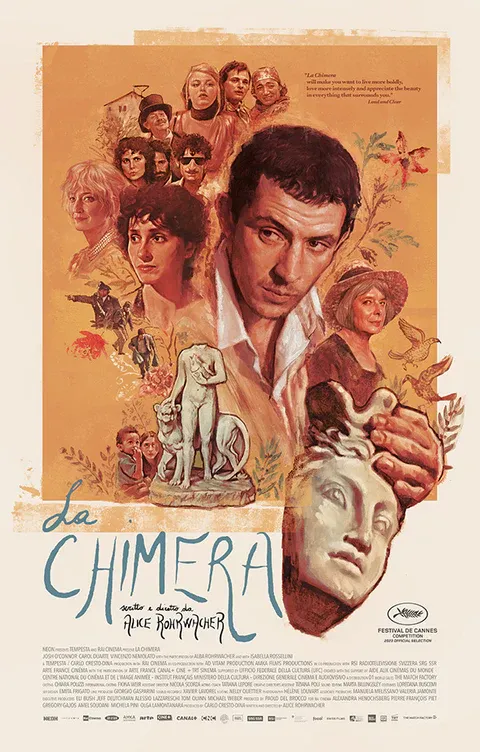Song Signed Blue
Sundance hit "CODA" comes to Apple TV+
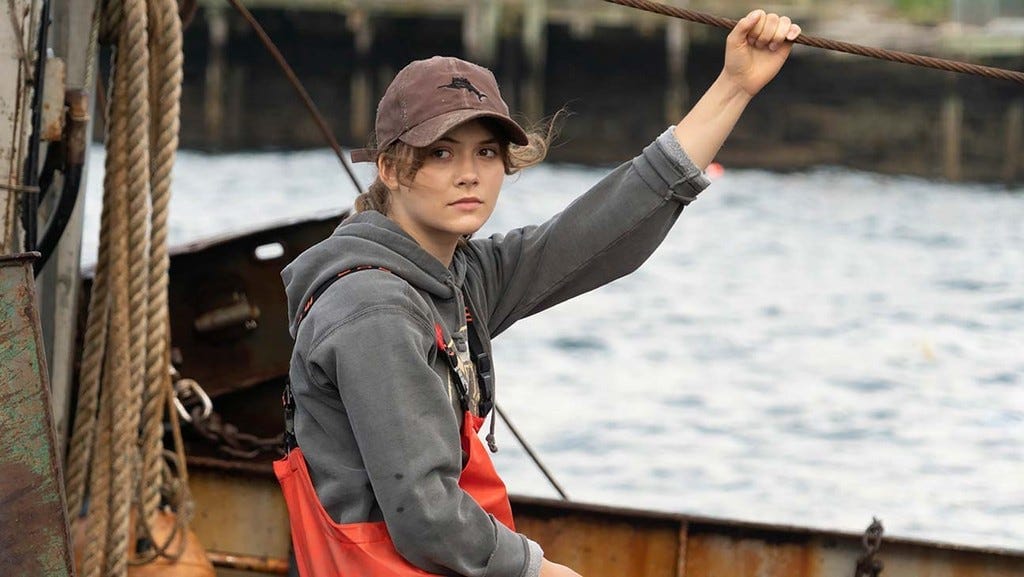
Some movies are built to please, and “CODA,” which arrives on Apple TV+ today, is good enough at the job to have conquered this year’s virtual Sundance Film Festival, winning the Grand Jury Prize and the Audience Award, among others. It’s something rare — a film that’s lovable — and if its narrative bones are over-familiar from any number of coming-of-age indie dramas, the particulars are fresh and honestly felt. This is cinema as comfort food, and maybe you could use a bowl about now.
CODA stands for Child of Deaf Adults, and the “child” at the center of the movie is Ruby Rossi (Emilia Jones), a high school senior first seen working her family’s fishing boat in the waters off Gloucester, Mass. She gets up at 3:00 a.m., hauls in the nets, goes to school, falls asleep in class, and gets teased by the mean girls for smelling like fish – that’s pretty much her life. Because her father Frank (Troy Kotsur), mother Jackie (Marlee Matlin), and older brother Leo (Daniel Durant) are all deaf, Ruby has grown up being their voice to the world. Which until now has precluded her having a voice of her own.
But she does have one – a singing voice that’s rich and expressive and that brings her to the attention of the school’s persnickety choirmaster (Eugenio Derbez). Will Ruby work up the nerve to perform a duet with a handsome classmate (Ferdia Walsh-Peelo)? Can she convince her family to let her go to the Berklee College of Music in Boston? Can she let them go?
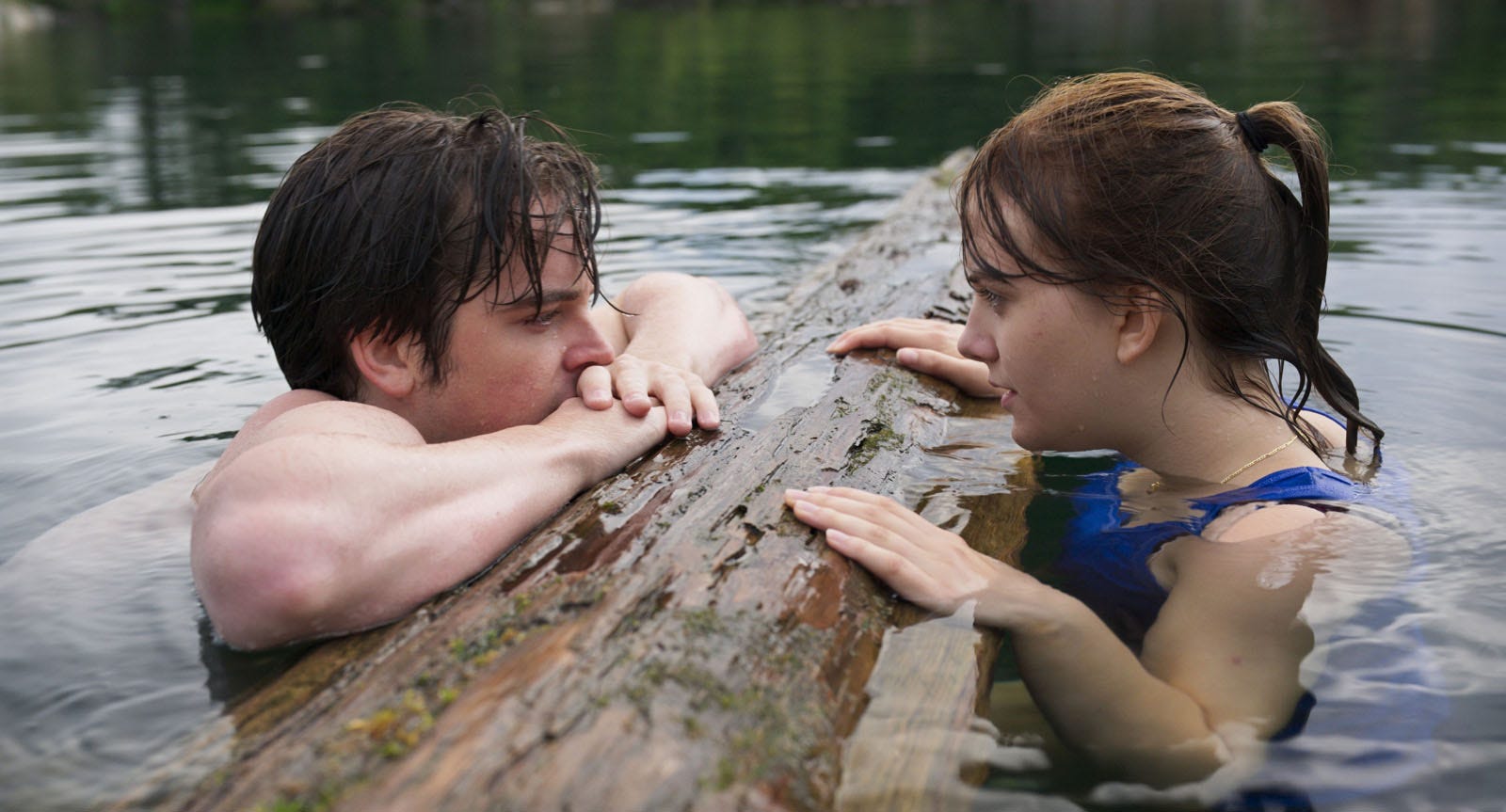
The answers won’t surprise you, but “CODA” will most likely charm you, and that’s an interesting trick to pull off. (If nothing else, the movie’s proven audience appeal suggests that no matter how much people claim to prize originality, they prefer the familiar when it’s served up with new ingredients and good cheer.) Jones is sympathetic as Ruby and Derbez gets the most out of a character that’s close to ethnic caricature on paper, but it’s the actors playing the heroine’s family – all of them deaf performers – who are the film’s ace in the hole, creating a warm and raucous clan all the more tightly bound for their isolation from the hearing world. The American Sign Language dialogue in the domestic scenes is caustic, funny, loving, and lived in. You know how some families are just loud? The Rossis are loud in ASL.
Matlin you remember from the film version of “Children of a Lesser God” (1987), for which she won a best actress Oscar; Kotsur is a long-established performer in deaf theater and in movies and TV. The two are wonderful as the parents, a cantankerous old hippie and a working-class beauty queen who can’t keep their hands off each other, to their daughter’s chagrin. Kotsur especially seems poised for end-of-year acclaim, so fully does he inhabit a proudly profane man who even seems to sign with a North Shore accent. And there’s a moment toward the end, when we finally experience the world and Ruby’s voice the way Frank and Jackie do, that makes all the film’s contrivances drop away. The scene between father and daughter that follows — Frank “hearing” Ruby’s voice in the only way, the best way, he can — has a poignancy that feels fully earned.
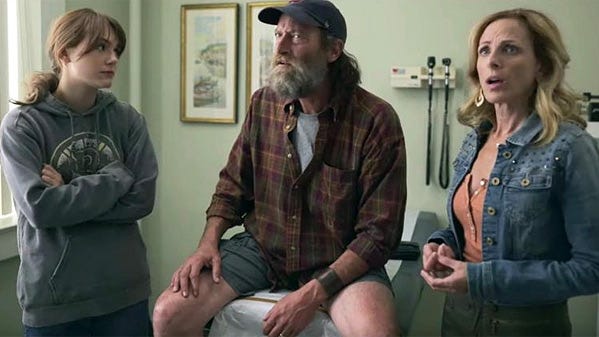
The writer-director is Siân Heder, raised in Cambridge and director of the worthy but little seen 2016 film “Tallulah.” Adapting a 2014 French film, she gets the grit of the Gloucester docks and the economic vise in which fishing families like the Rossis are squeezed between shrinking catches and encroaching bureaucracy. I could pick nits with “CODA” – maybe one 21st-century teenager could name-check the late ‘60s outsider-rock sister act The Shaggs, but two? – but that seems almost churlish in the face of the movie’s ingratiating vibe.
A final note: “CODA” is the sort of festival hit that in earlier years would have had a mid-year theatrical release and done some decent business. Instead, distribution rights went to Apple for $25 million – a Sundance record – and the film will be available only to those paying $4.99 a month for Apple TV+. It’s another sign of how the streaming wars, still only heating up, stand to Balkanize audiences and experiences into rival viewing silos. And yet I’m glad people will have the option of seeing this movie, given renewed pandemic pre-cautions. The ironies abound: “CODA” is a crowd pleaser for a time without crowds.
If you enjoyed this edition of Ty Burr’s Watch List, please feel free to share it with friends.
Or subscribe. Thank you!


